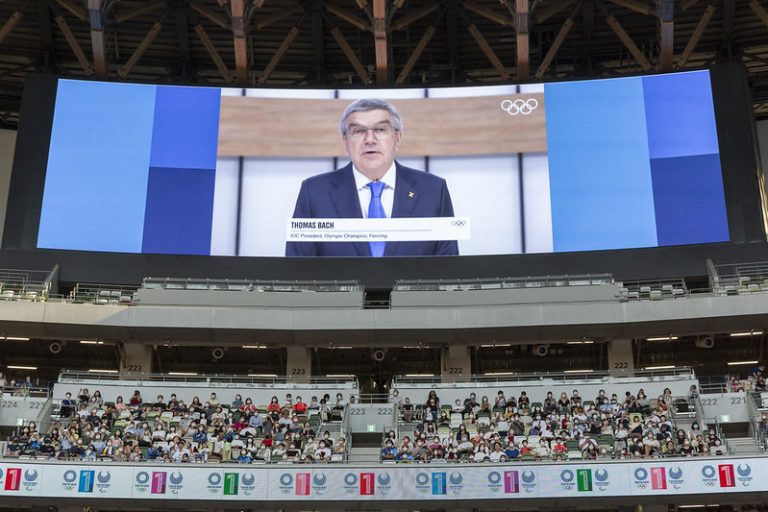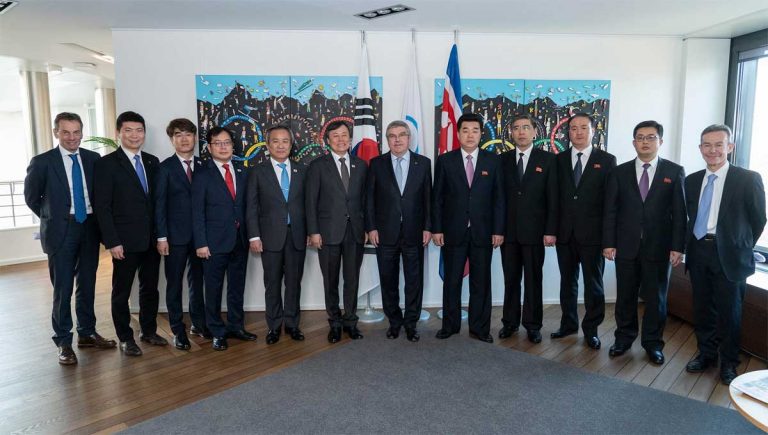International Olympic Committee (IOC) president Thomas Bach has cast doubt on the possibility of a 2030 and 2034 Winter Olympic bid double allocation, hinting that only one city would be awarded hosting rights when an election is held in Mumbai, India next May.

Bach told Japan’s Kyodo news this week that an early awarding of the 2034 Games would cement a long-term path for his organization that would encroach on the work of his successor, who is expected to be elected after the current president’s terms ends in 2025.
“I think that even in a situation where you could have, on the mere technical side, good reasons to do it, that for reasons of good governance, it would not be the right thing to do,” Bach said from IOC headquarters in Lausanne.
Salt Lake City in the United States is currently facing rivals from Sapporo in Japan and British Columbia in Canada – all competing to host a second Winter Games in 2030. Recent reports have revealed that the Utah capital might defer its project until 2034 in order to avoid a domestic calendar conflict with Los Angeles, already set to host the 2028 Summer Games only 18 months earlier. Should that happen, the city is considered a virtual lock to host the latter Games due to its readiness with existing venues and strong public support.
It had been thought that the IOC would forgo the cost and effort of future formalities and award the 2034 Games if that is already the intended direction for the organization. The precedent for this was set in 2017 when Paris and Los Angeles – both pursuing the 2024 Games at the time – were awarded the 2024 and 2028 Games respectively and simultaneously. Both were strong bids that would solidify the foundation of the Games for the next decade.
Bach’s remarks will not only add emphasis to Salt Lake City’s pursuit for the earlier 2030 Games, but will create risk in a path to 2034 if a future IOC administration has different goals. The Olympic bid process has evolved into a decision among a few executives atop the organization that is strongly influenced by the president.
Bach recently lauded the Salt Lake City bid committee for its great “unity and enthusiasm.”
But USOPC chair Susanne Lyons said last month that the IOC continued to harbor “hard feelings” from the U.S. government’s open criticism of China’s human rights record in the run-up to the Beijing 2022 Winter Games. She hinted that this was one of the contributing factors that could shift the bid’s focus to 2034.
The IOC Executive Board is expected to announce preferred candidates for any number of future Games, according to its policies, in December this year.
Meanwhile, Bach showered similar praise on Sapporo’s bid for the 2030 Winter Games earlier this week when he told Kyodo “What I can see is that there is a very good cooperation between the different levels of authorities and government on the one hand…and also there is a good cooperation with the Japanese Olympic Committee on the other hand.”
“And this kind of cooperation and support is one of the essentials for every intention to host Olympic Games.”
A three-person IOC technical team visited all three cities earlier this year to provide advice and make assessments. A Salt Lake City delegation including bid CEO Fraser Bullock and Olympic Champion Lindsey Vonn visited IOC headquarters last month.
A bid from Spain dropped out of the running in June when regional partners representing Barcelona and the Pyrenees failed to agree on project plans amid political differences.


